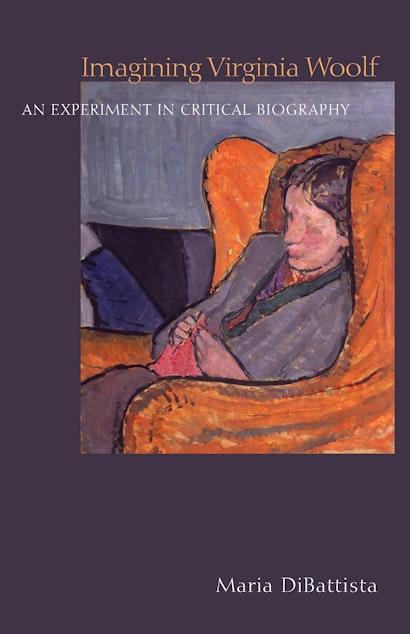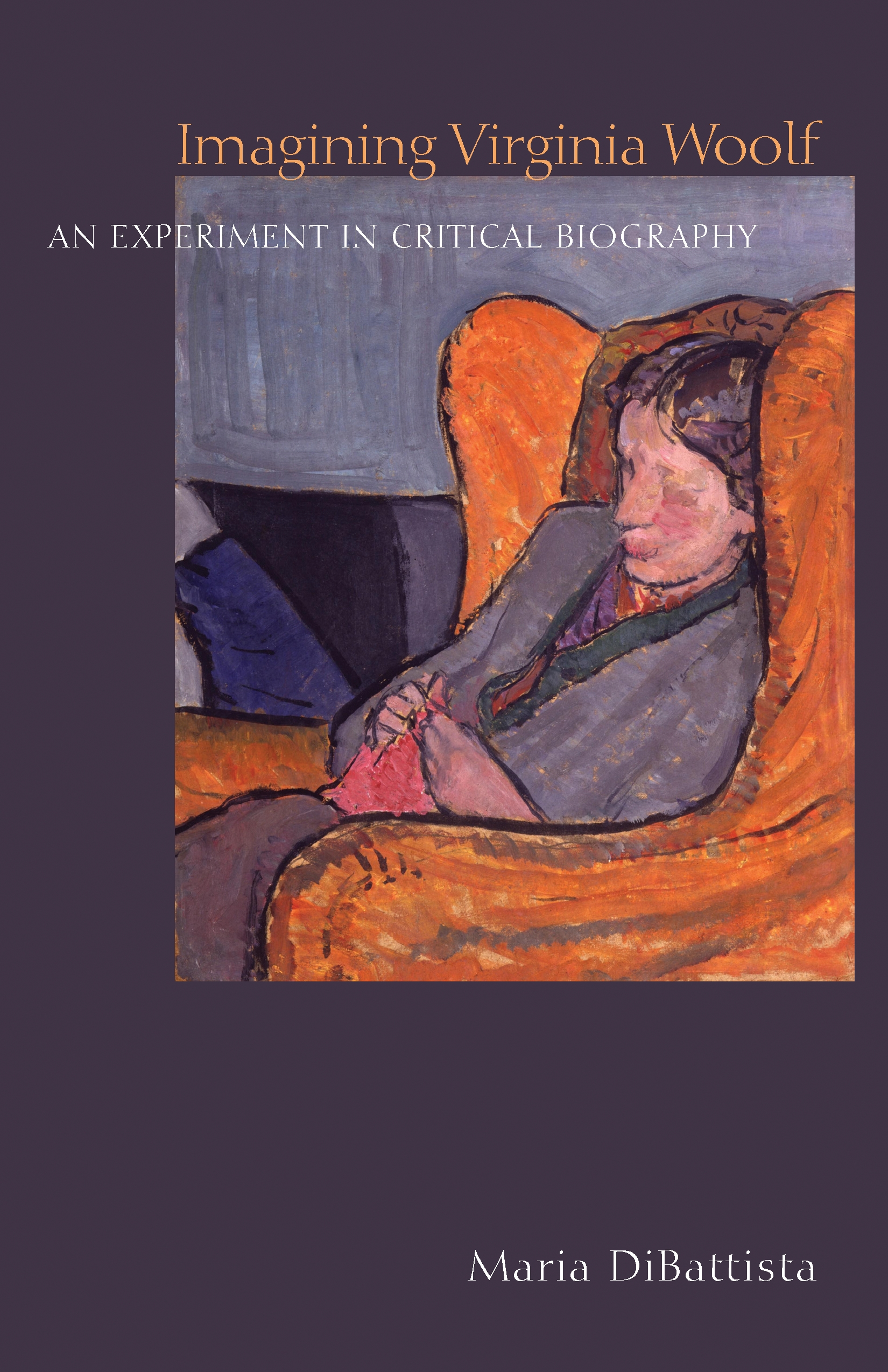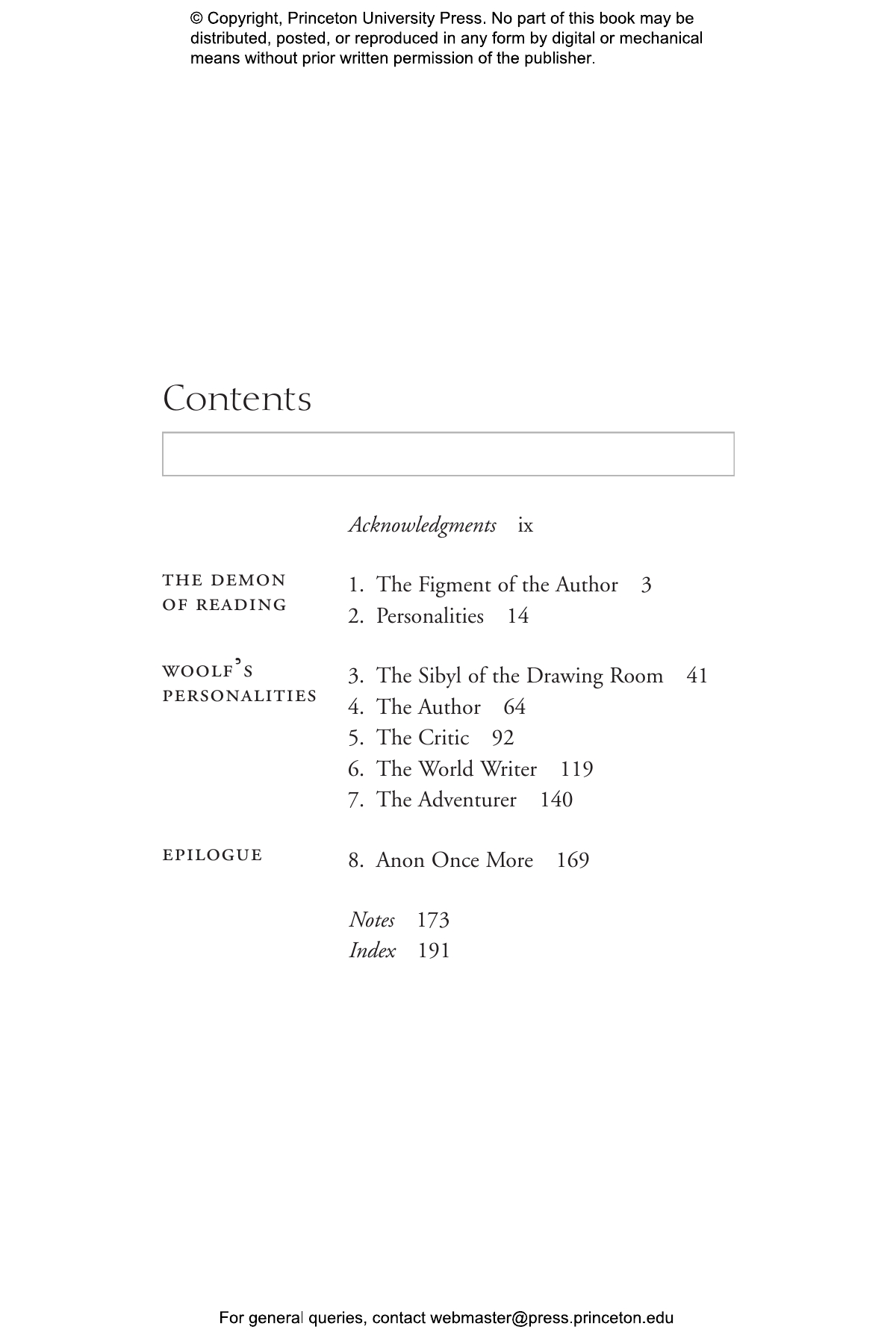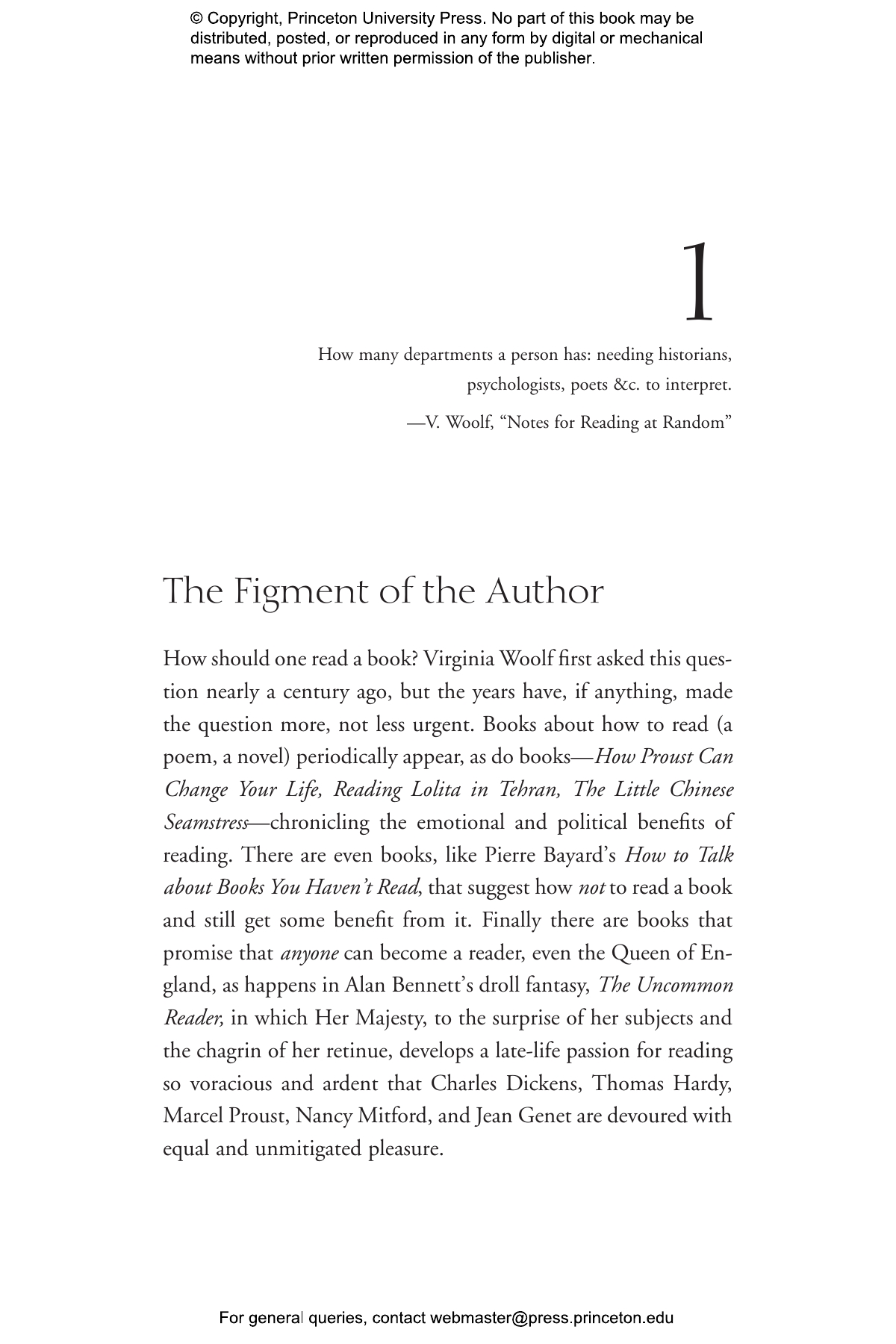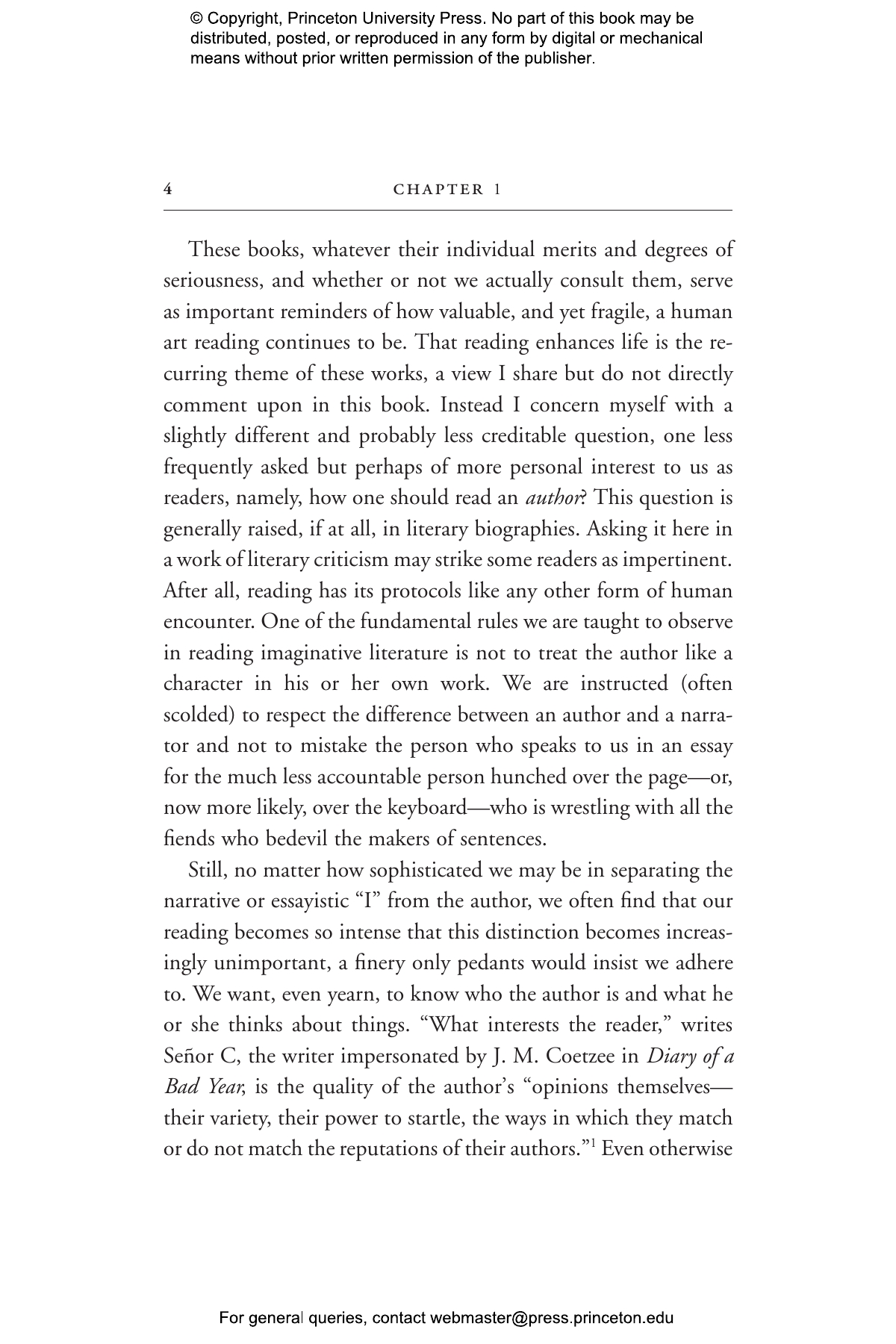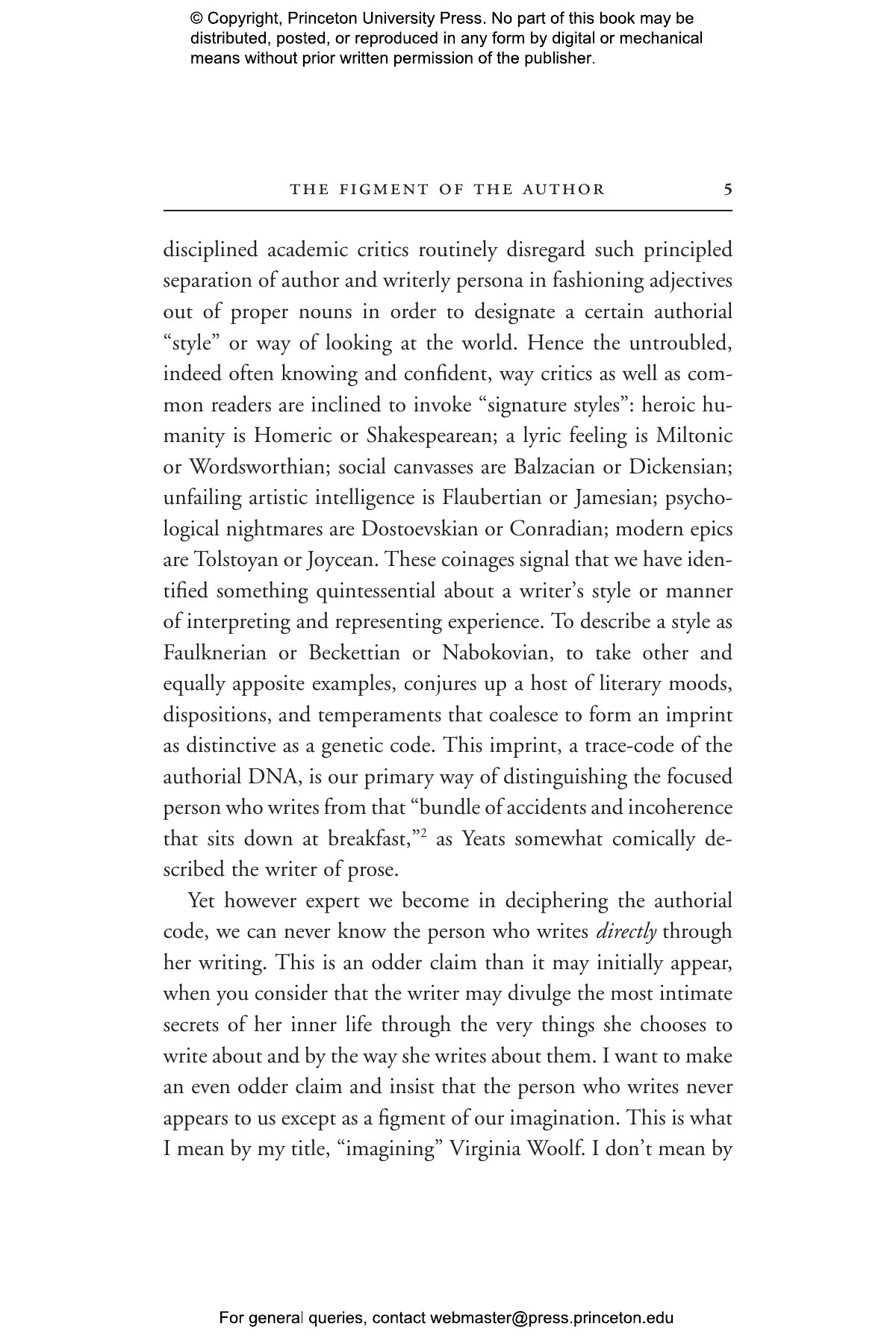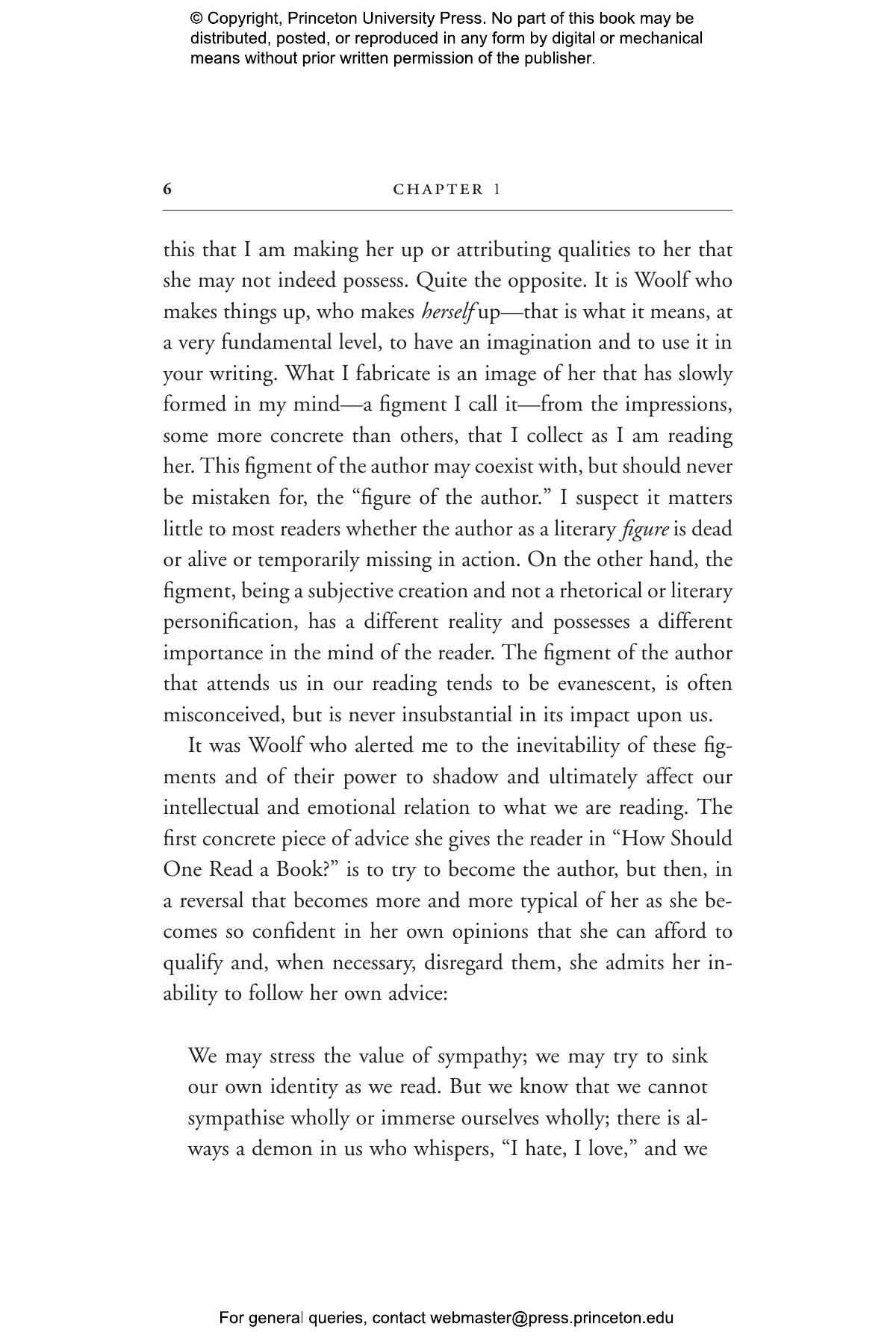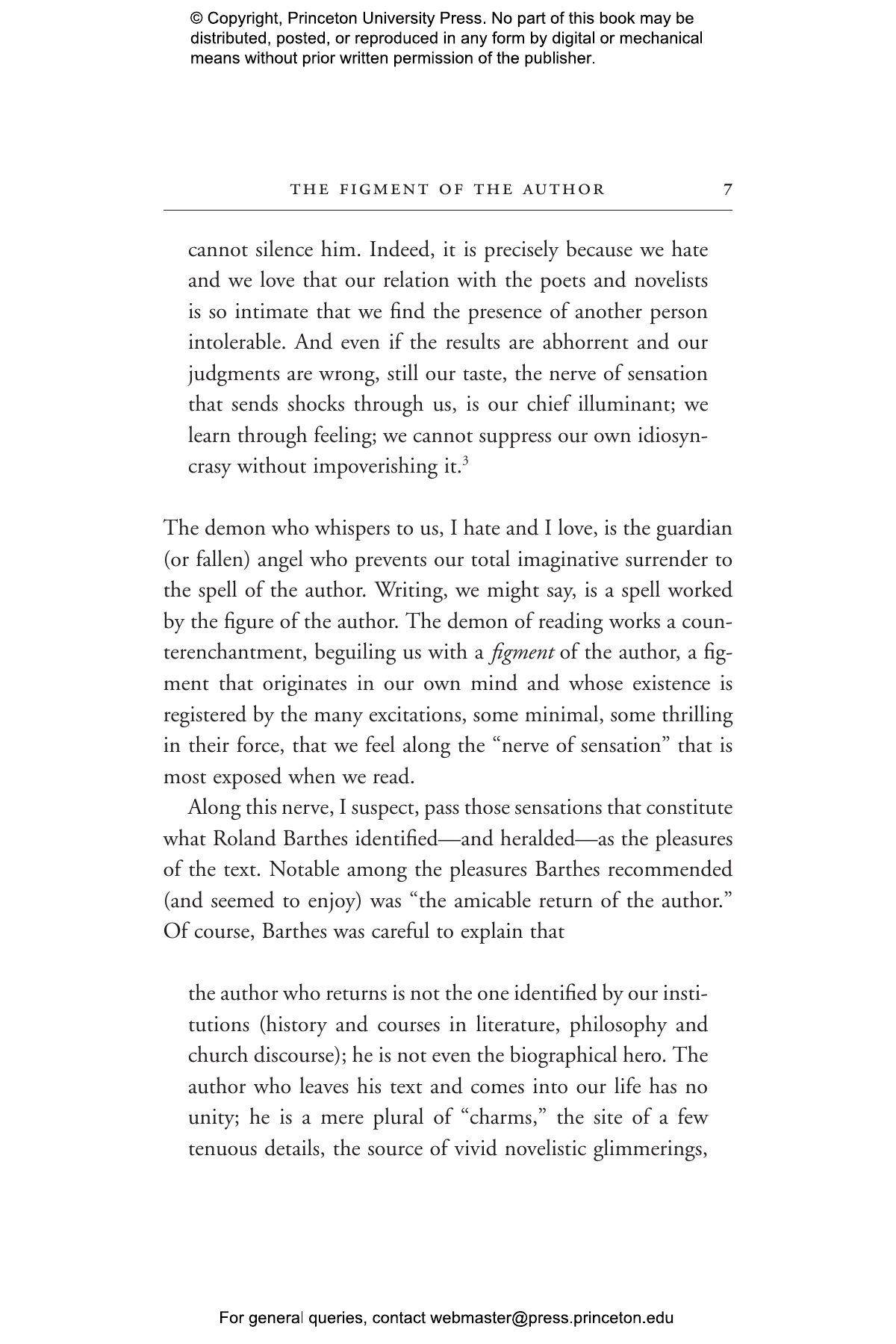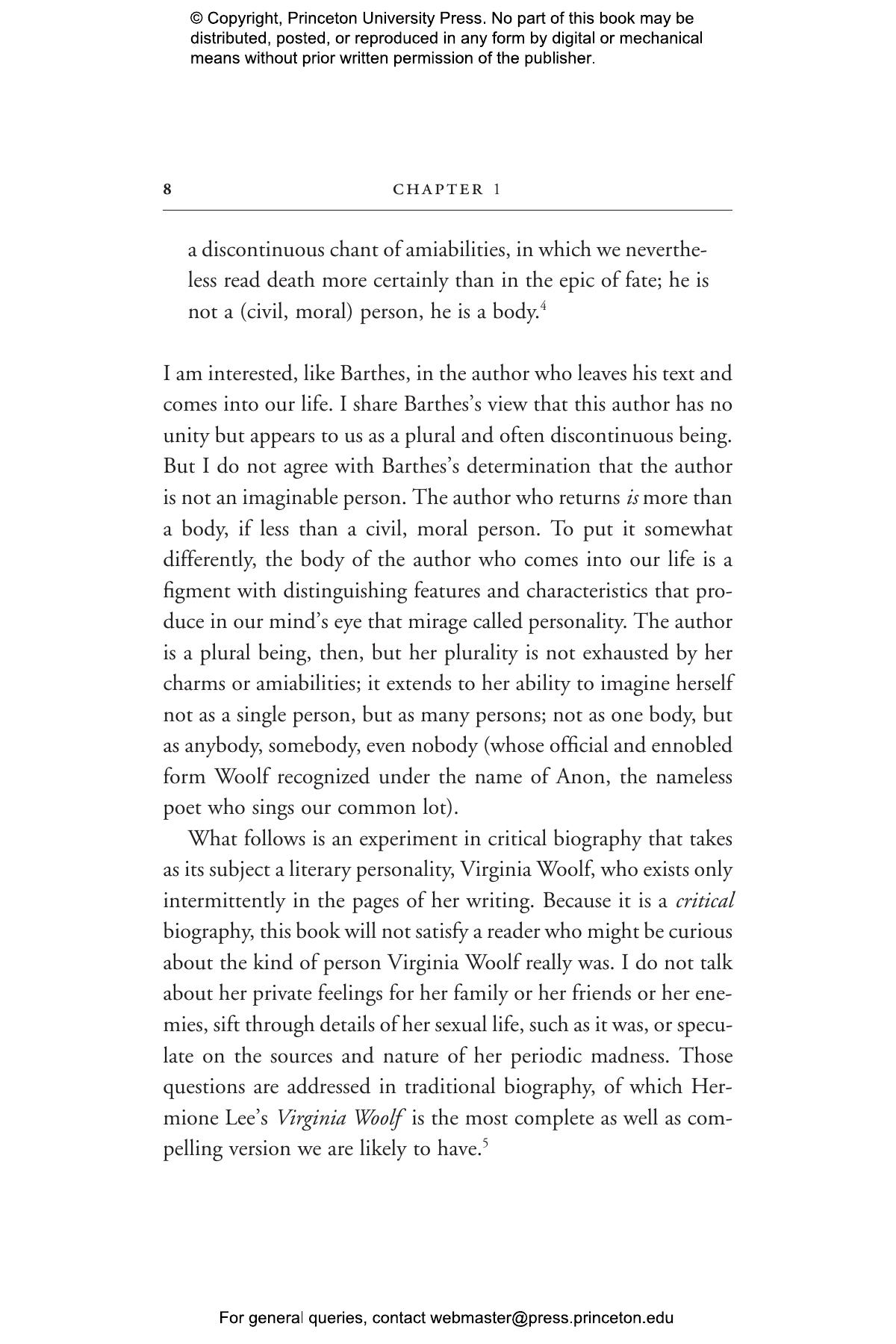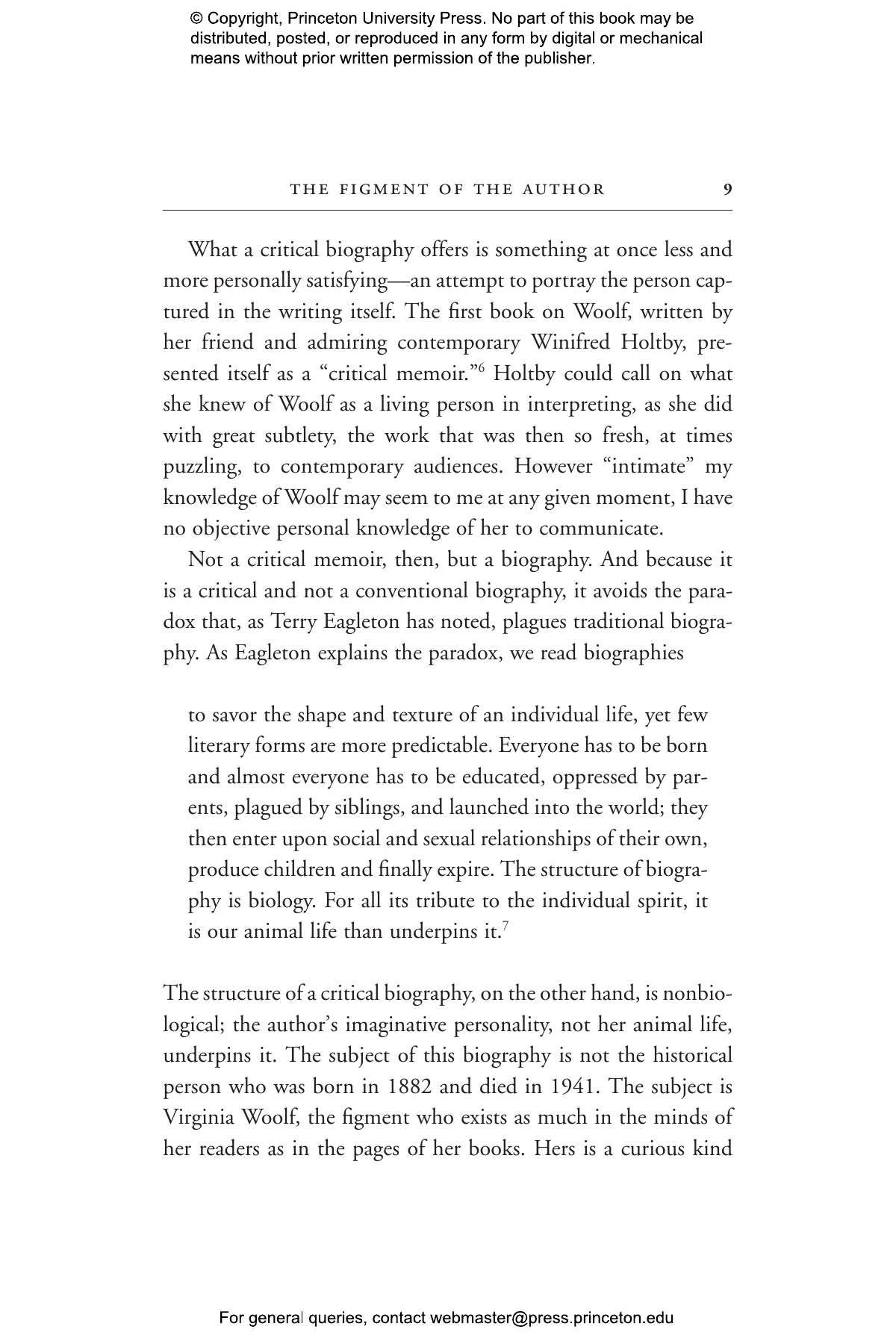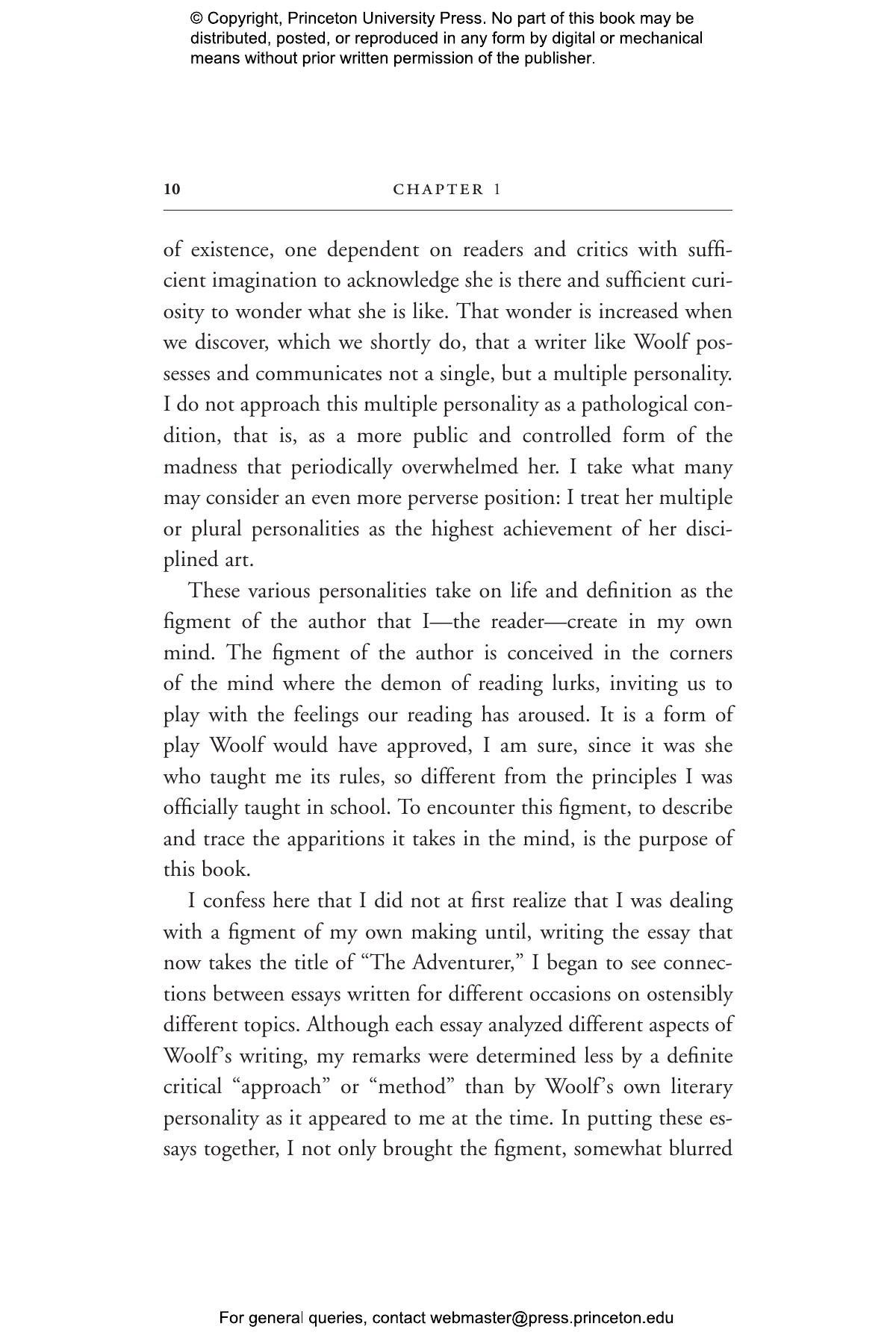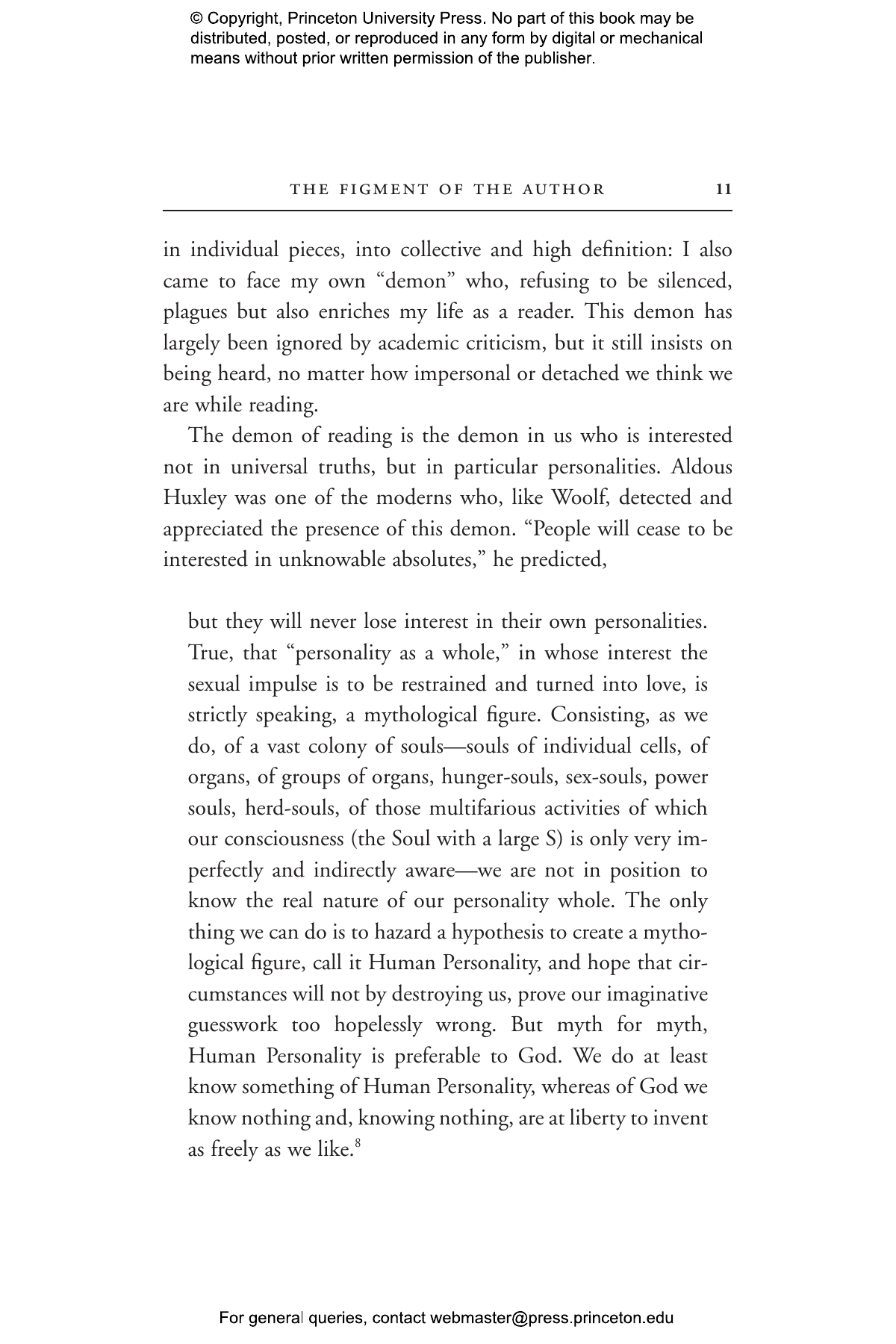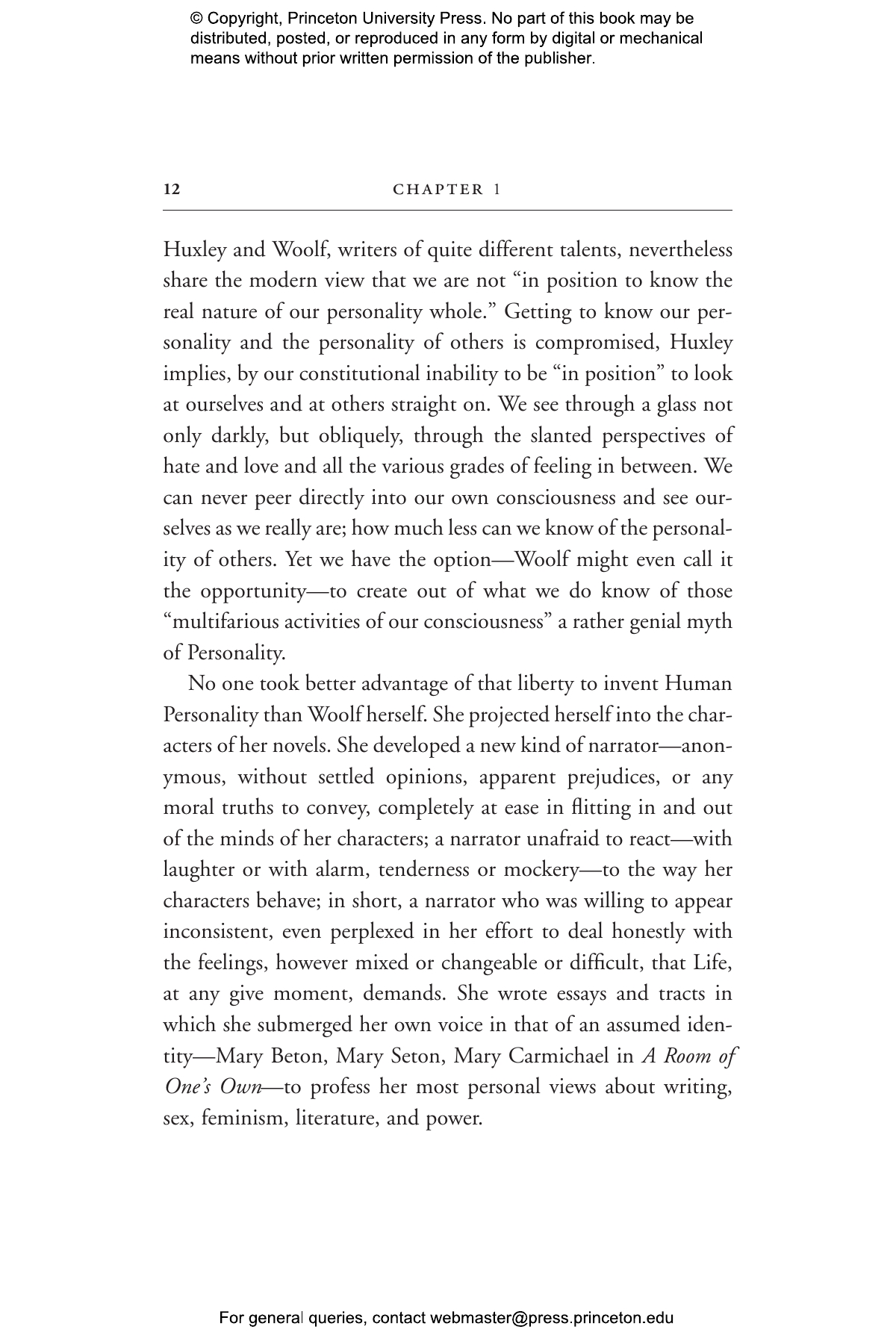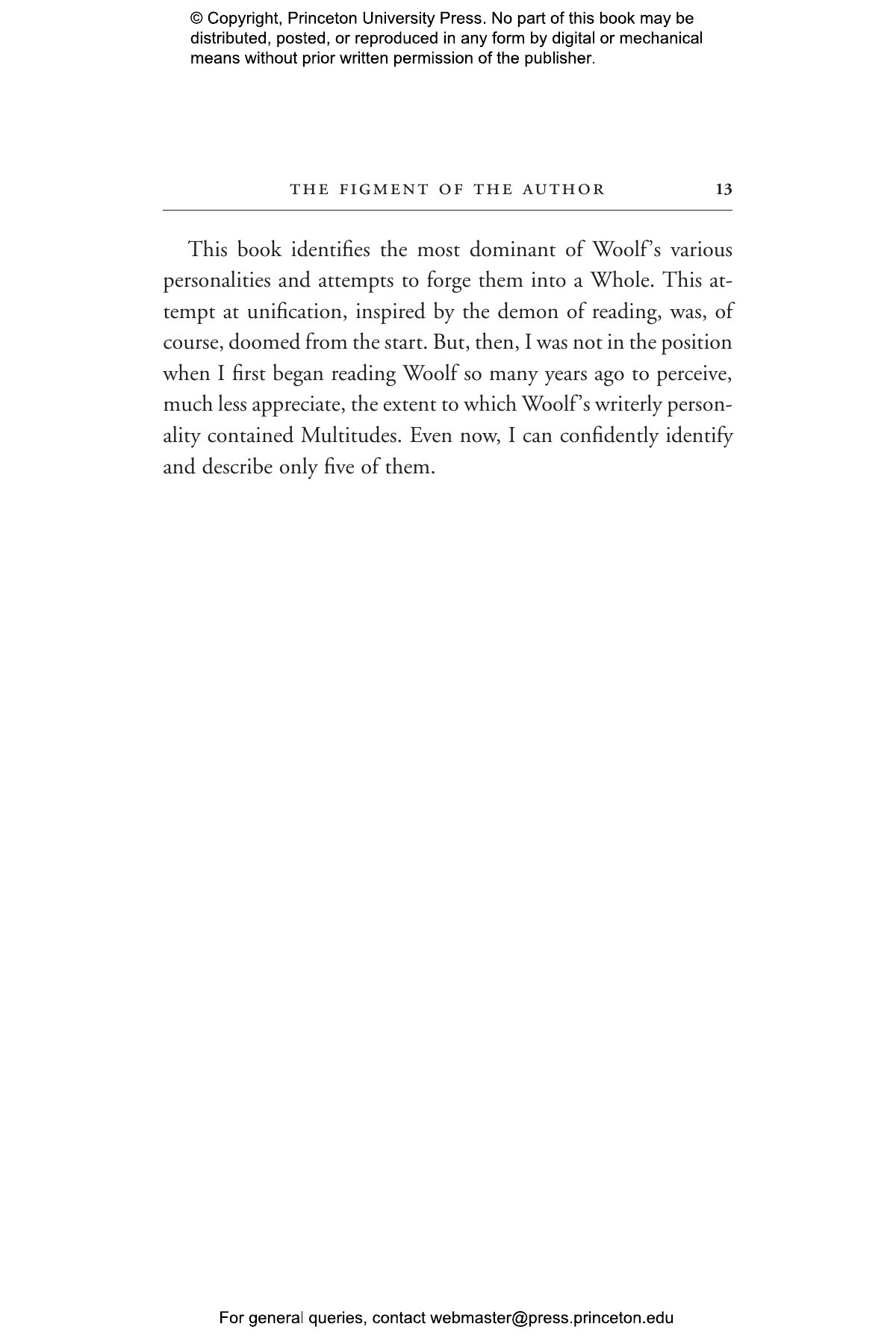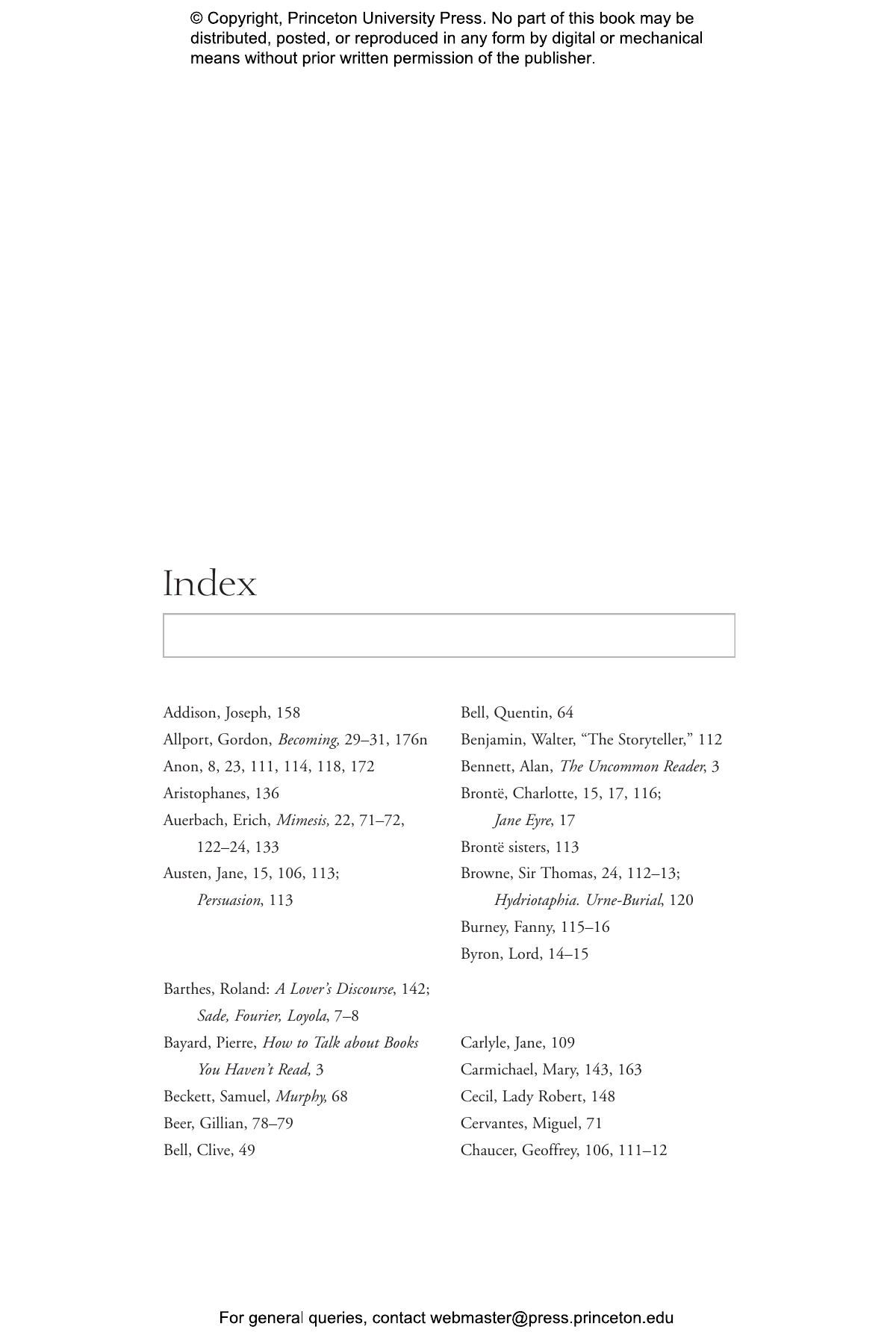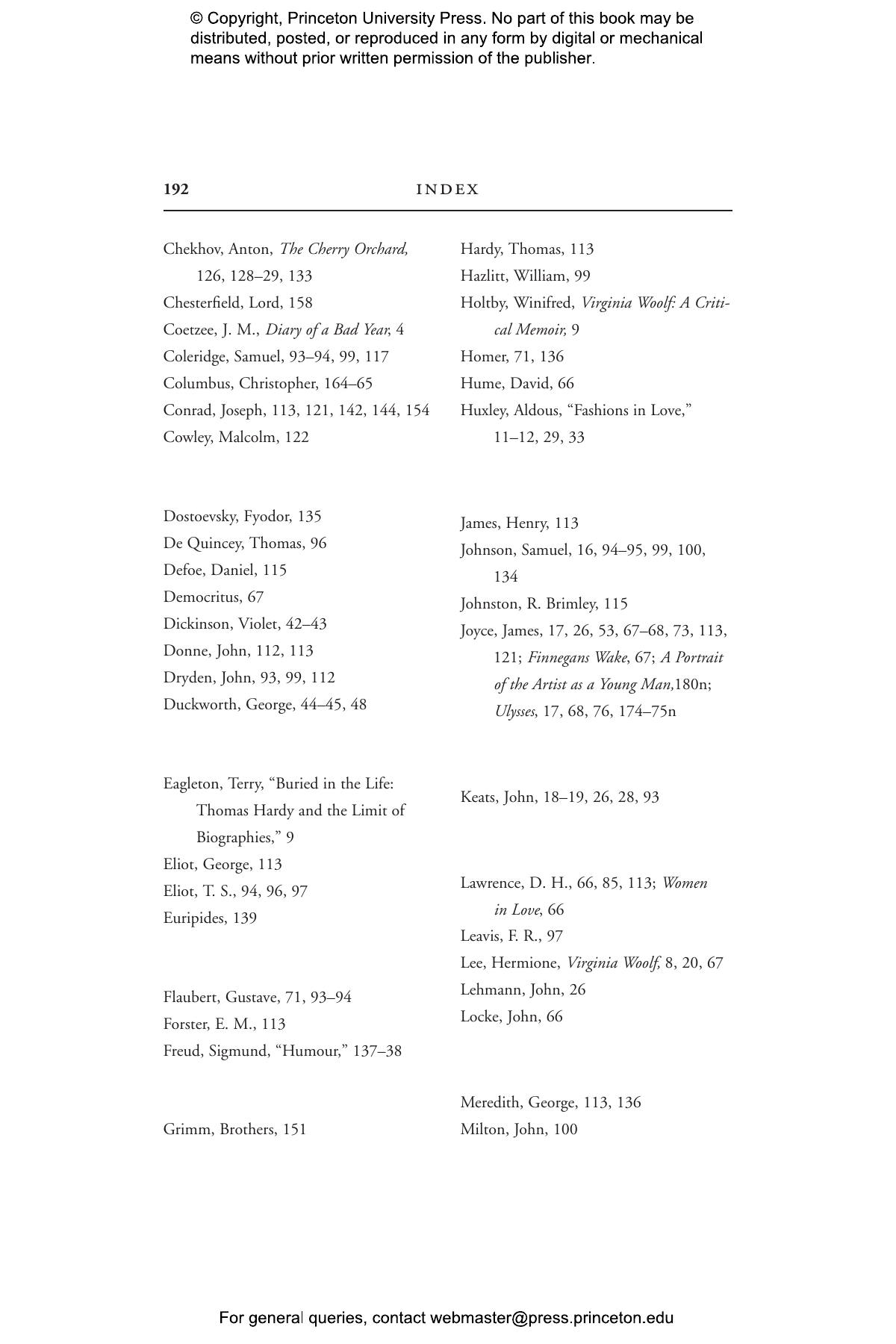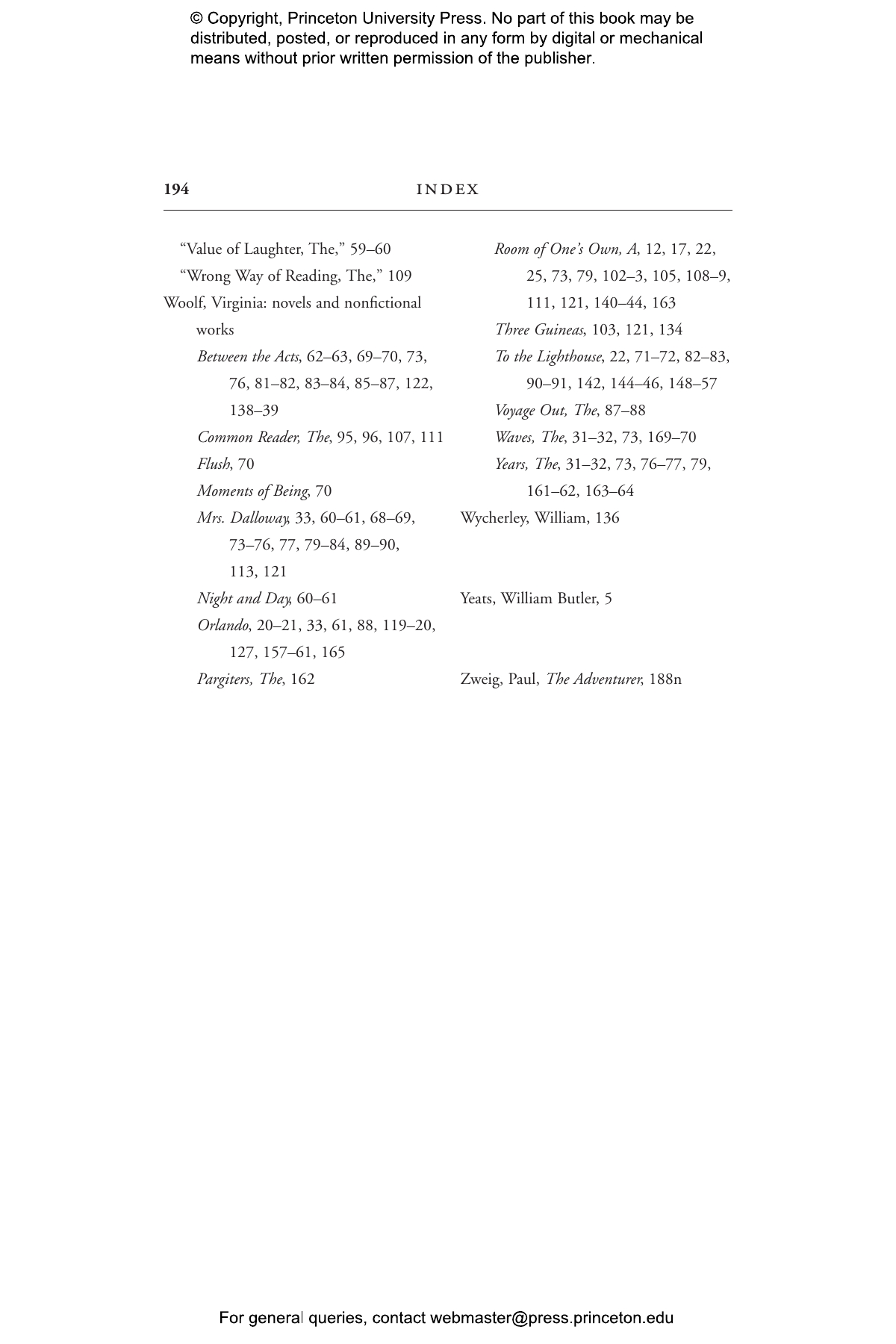Where other works of literary criticism are absorbed with the question—How to read a book?—Imagining Virginia Woolf asks a slightly different but more intriguing one: how does one read an author? Maria DiBattista answers this by undertaking an experiment in critical biography. The subject of this work is not Virginia Woolf, the person who wrote the novels, criticism, letters, and famous diary, but a different being altogether, someone or something Maria DiBattista identifies as “the figment of the author.” This is the Virginia Woolf who lives intermittently in the pages of her writings and in the imagination of her readers. Drawing on Woolf’s own extensive remarks on the pleasures and perils of reading, DiBattista argues that reading Woolf, in fact reading any author, involves an encounter with this imaginative figment, whose distinct, stylistic traits combine to produce that beguiling phantom—the literary personality.
DiBattista reveals a writer who possessed not a single personality, but a cluster of distinct, yet complementary identities: the Sibyl of Bloomsbury, the Author, the Critic, the World Writer, and the Adventurer, the last of which, DiBattista claims, unites them all.
Imagining Virginia Woolf provides an original way of reading, one that captures with variety and subtlety the personality that exists only in Woolf’s works and in the minds of her readers.
Maria DiBattista is professor of English and comparative literature at Princeton University. Her books include Virginia Woolf's Major Novels and Fast-Talking Dames.
"DiBatistta (Fast-Talking Dames) pieces together a portrait of Virginia Woolf as experienced by readers. . . . For general fans of literary criticism or of Woolf's writing in particular, DiBattista's experiment will offer an intriguing perspective on Woolf's relationship to her art and her audience."—Publishers Weekly
"Like Anne Fernald's Virginia Woolf: Feminism and the Reader, DiBattista's study extends understanding not only of Woolf's craft and intellectual life but also of reading practices in general."—Choice
"What interests Maria DiBattista is not who Woolf actually was—the flesh and blood woman—but the multiple personalities that emanate from her books. Reading a writer familiar to us is, in many ways, no different from seeing people we know, she says. In both cases, the person we think we know is a composite of the various facets of them we have glimpsed."—Fiona Capp, The Age
"[W]hen people ask me about biographies about Woolf, I will recommend this one. Certainly, it cannot replace the more traditional biographies DiBattista acknowledges in her introduction, but it is an important supplement to them. My own understanding of the traditional biographies is more nuanced, a result of reading DiBattista's book."—Molly Youngkin, English Literature in Transition
"[T]his short book is full of insights. . . . I recommend it to you; it is a pleasure to read."—Stuart N. Clarke, Virginia Woolf Bulletin
"[T]he more vivid impressions generated by DiBattista's study: namely, the reader's sensation of having been shown 'Virginia's Room' in a new light, as well as the realization that Woolf's 'room of one's own' is now a multitude of rooms, imaginative spaces where her readers have the freedom to hang looking-glasses in whatever odd corners they may choose."—Rosemary Joyce, Tulsa Studies in Women's Literature
"This book is a lively, original, and very interesting personal reading of Virginia Woolf, sensitively done and well-written. It is clever and illuminating to approach Woolf through the idea of the writerly personae, rather than biographically or in more conventionally critical ways. I enjoyed this book very much and was impressed and refreshed by it."—Hermione Lee, author of Virginia Woolf and Edith Wharton
"Few critics have the skill to make us see anew; few have taken Woolf's love of words and her own study of their characteristics as seriously as DiBattista does here. By the time one finishes the book, DiBattista has given us a new perspective on Woolf, her love of language, and her sense of the relationship between words, the self, and the personalities inscribed therein."—Brenda R. Silver, Dartmouth College
